George Osborne sets out UK's economic demands for EU reforms
- Published
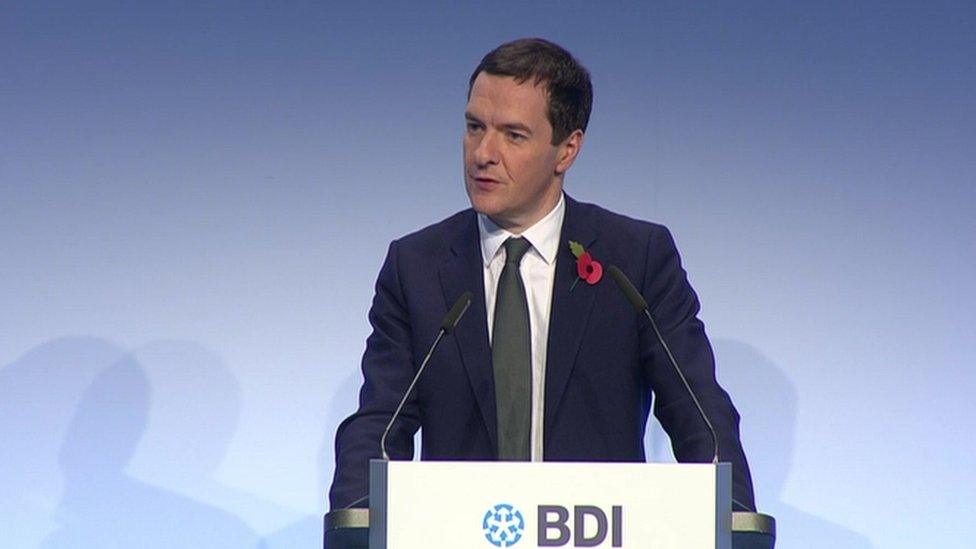
Mr Osborne said the UK must not be at a "systematic disadvantage" in the European Union
George Osborne has said there is a "deal to be done" as he set out UK demands for its future EU membership in a speech to German business leaders.
The chancellor said countries which do not use the euro should not be discriminated against and not required to bail out single currency members.
He wanted to ensure the "voice of the pound is heard when it should be".
German leader Angela Merkel said her message to Mr Osborne was that the UK must "stay in" the EU.
Follow all the latest developments on BBC Politics Live
Mr Osborne's visit to Germany comes as the UK government "steps up the pace" of renegotiation talks ahead of an in/out referendum promised by the end of 2017.
Prime Minister David Cameron will next week set out Britain's demands in full in a letter to European Council President Donald Tusk.
Merkel message
But Mr Osborne has prepared the ground with a speech to business leaders in Berlin, setting out his vision of Britain's place in a reformed Europe.
He told the BDI, the Federation of German Industries, the EU must accept that the single market has more than one currency and that it "should not discriminate against any business on the basis of the currency of the country in which they reside".
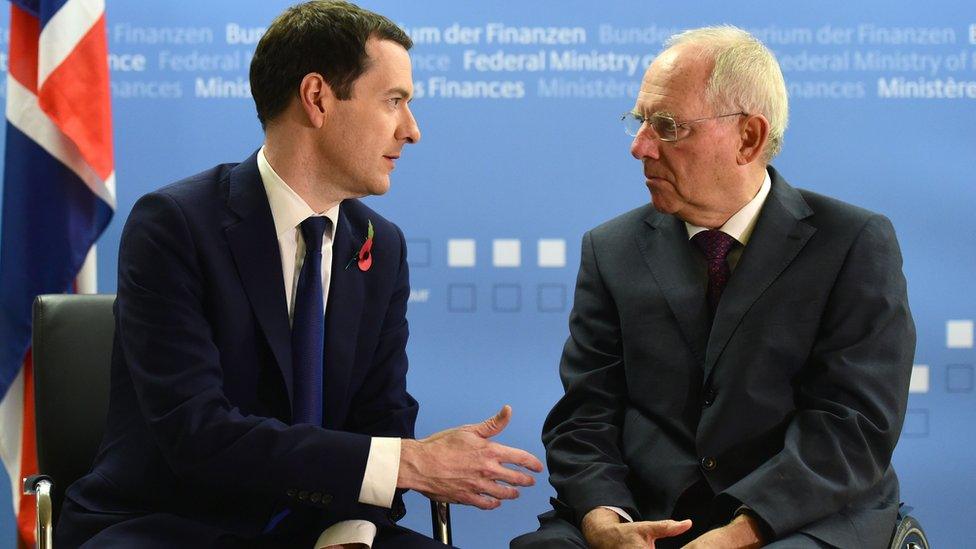
George Osborne met German finance minister Wolfgang Schauble in Berlin
"What we seek are principles embedded in EU law and binding on EU institutions that safeguard the operation of the union for all 28 member states. The principles must support the integrity of the European single market."
And he will add: "We must never let taxpayers in countries that are not in the euro bear the cost for supporting countries in the eurozone."

Analysis by Laura Kuenssberg, BBC political editor
Not much happens in the European Union without Germany's agreement.
So the conversations between the Chancellor George Osborne and the German finance minister, Wolfgang Schauble, really matter.
And Mr Osborne will use this visit to give more details of two of the four goals the government hopes to achieve as part of their quest for a new relationship with the rest of the EU - an explicit end to the commitment of ever closer union, where countries inside the EU inevitably become more and more aligned, and a legal guarantee that British businesses won't lose out because they are not in the eurozone.
Making those demands to the rest of the EU is one thing, persuading their leaders to help the UK's cause is quite another.

Speaking ahead of Mr Osborne's appearance at the conference, Angela Merkel said: "I think Great Britain should remain a member of the European Union. Mr Osborne is not here yet (at the BDI meeting), but you can relay a message to him: Stay in.
"But of course this is not just up to us. In the end the British have to decide. The only promise we can make is this: Whereever their demands are justified, more competitiveness, more effectiveness in the EU, the British demands are our demands too.
"Of course we won't be able to agree on everything, we have always found possibilities for opt-outs, and the Europe of today is not a one-speed Europe.
"For us there are many reasons to keep the UK in the EU and we will do everything we can to make this happen. But the British have to decide and I hope they will make a decision that takes Europe forward."
Another crucial demand for the UK is the ability to opt-out of the EU's commitment to "ever-closer union" between member states, which dates back to the 1957 Treaty of Rome, external.
'Strains'
Mr Osborne said he welcomed Mrs Merkel's "strong leadership" but went on to make clear that the British people "do not want to be part of an ever-closer union".
He stressed the British government's desire to stay in a reformed, EU, but added: "It needs to be a Europe where we are not part of that ever closer union you are more comfortable with.
"In the UK, where this is widely interpreted as a commitment to ever-closer political integration, that concept is now supported by a tiny proportion of voters.
"I believe it is this that is the cause of some of the strains between Britain and our European partners.
"Ever closer union is not right for us any longer."
He said that the new principles "must ensure that as the eurozone chooses to integrate it does so in a way that does not damage the interests of non-euro members".
The chancellor fears Britain could be kept out of decisions on single market laws that will have an impact on its economy as integration between the 19 euro member states intensifies.
His proposals could be enshrined in future EU treaty changes after Britain has held its referendum but only if Mr Cameron and Mr Osborne can persuade other EU countries to accept that they do not represent special treatment for the UK.
- Published2 November 2015
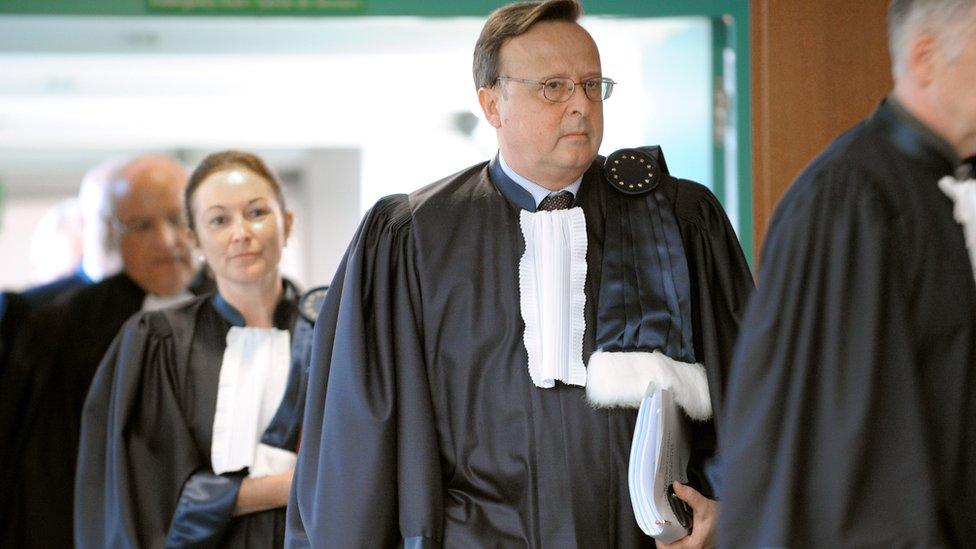
- Published30 December 2020

- Published29 October 2015
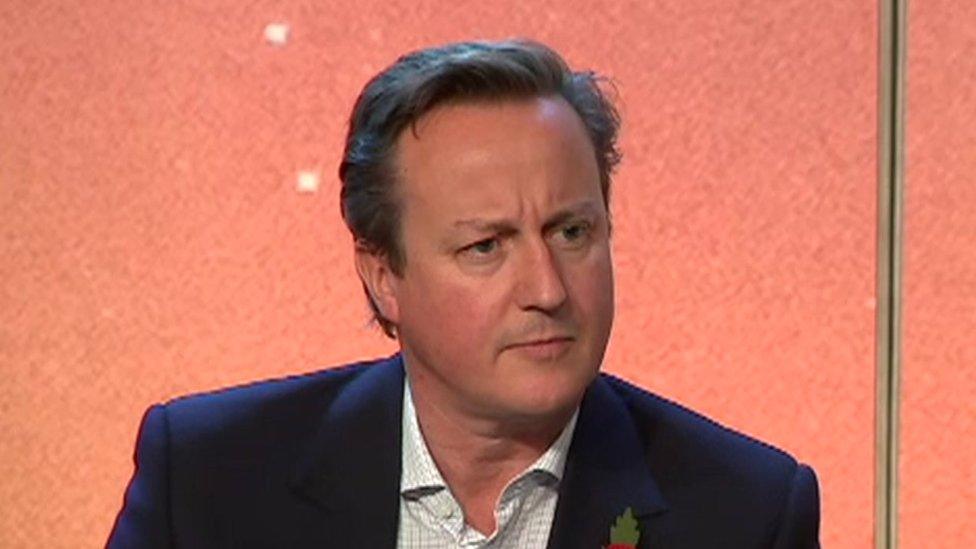
- Published19 May 2015
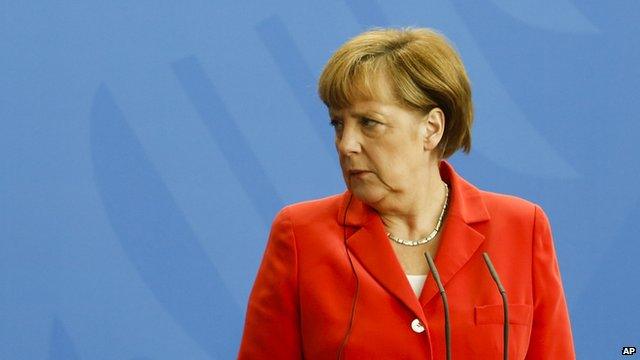
- Published28 October 2015
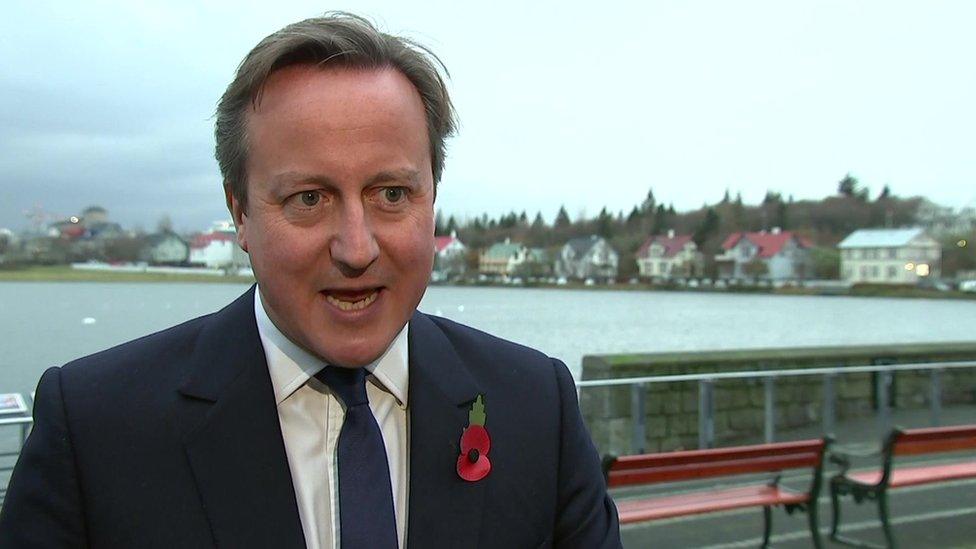
- Published2 September 2015